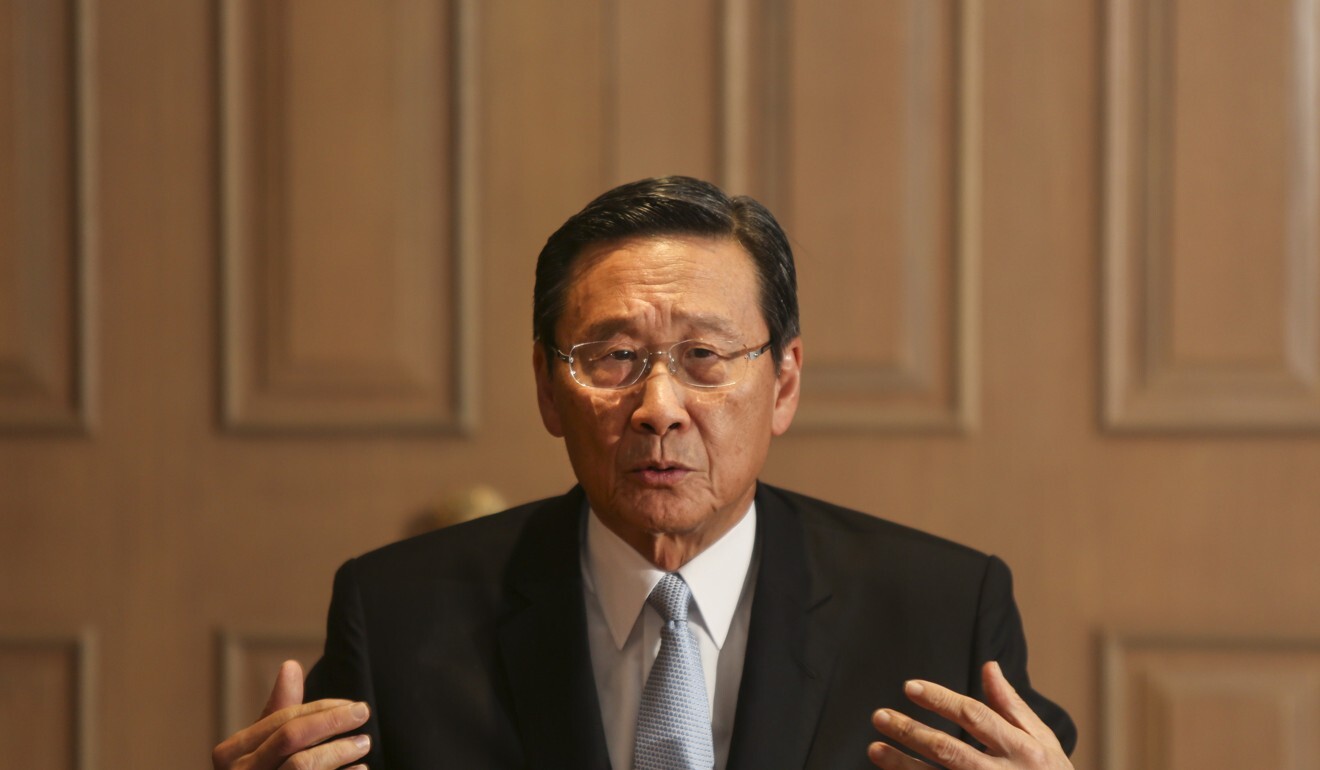
Tycoon Li Ka-shing throws weight behind Hong Kong national security law, suggests it will ease Beijing’s ‘apprehension’ about city
- Billionaire among six prominent business figures in Hong Kong expressing support for central government’s plan to introduce national security law for city
- Hongkongers need not ‘over-hypothesise’ pending legislation, Li argues, saying a ‘positive outlook’ will prevail once it is passed
The billionaires issued separate statements in recent days ahead of a vote at the National People’s Congress in Beijing which could pave the way for the new law to be passed later this year.
Beijing expands proposed national security law to prohibit ‘activities’ that would ‘seriously endanger national security’
People should not read too much into the legislation, Li said. “It is within each and every nation’s sovereign right to address its national security concerns. We need not over-hypothesise it,” he added.
“Hopefully, the proposed new law can allay the apprehension the central government feels about Hong Kong and from thereon, a positive outlook can begin to prevail.”
Li said the city’s government had a “mission-critical task” to strengthen the confidence of Hong Kong people and to reinforce the international community’s trust in the “one country, two systems” principle.
The NPC will vote on a resolution on Thursday, authorising its Standing Committee to propose a law to “prevent, stop and punish” acts of secession, subversion, terrorism or interference by foreign forces in Hong Kong affairs.
The law will also require the Hong Kong government to set up new institutions to safeguard sovereignty while allowing mainland agencies to operate in the city as needed.

Beijing’s resolution was amended on Tuesday to expand its scope to prohibit “activities” that would “seriously endanger national security”, sources told the Post.
Critics have strongly opposed the plan, saying it would undermine the one country, two systems principle and destroy the city’s status as a global financial hub.
But Peter Lee Ka-kit, co-chairman of Henderson Land Development, said Hong Kong’s economic status would be “hard to keep” without a national security law.
The city must spare no effort in protecting jobs, people’s livelihoods and the market, he said. “All this is possible only in a situation where national security and social stability are guaranteed. Otherwise any efforts would be in vain,” Lee added, calling on people to set aside their differences.
Two charged over Sunday’s demonstrations against national security law
Henry Cheng Kar-shun, chairman of New World Development, said he would “support any law and policy that would help protect national security and maintain Hong Kong’s prosperity and long-term development. He believed the law would build a more “peaceful” business environment and social atmosphere.
Peter Woo Kwong-ching, former chairman of Wheelock and Company and Wharf Holdings, said the law was needed in the context of what he described as a “new Cold War”. Without it, Hong Kong would be lagging behind other parts of the world, he added.
“[The law] will hopefully bring Hong Kong back to its original way of life and business environment. I believe this is also the wish of many Hong Kong people,” Woo noted.
Robert Ng Chee Siong, chairman of Sino Land, said he “strongly supported” the national security law, which would be conducive to upholding one country, two systems and the city’s long-term prosperity and stability.
“The legislation will better protect Hong Kong people’s lives, property and public safety, and safeguard commercial investments and the interest of the general public,” he said. “When society is stable, there will be opportunities.”

Raymond Kwok Ping-luen, chairman of Sun Hung Kai Properties, said the national security law would create an “orderly” business and social environment, while strengthening the city’s position as an international financial centre.
Kwok noted that the central government had clearly indicated it would uphold the legal interests of investors, enterprises and citizens. He believed Beijing would continue to accurately implement “\one country, two systems.
Commentators and foreign diplomats in Hong Kong have raised concerns about the possibility of mainland agents enforcing the law in the city, and arresting people who protest against the government.
The city’s leader, Carrie Lam Cheng Yuet-ngor, said on Tuesday such fears were just people’s “imaginations or things that have been said”. She rejected criticism that the law would have significant negative consequences for Hong Kong’s economy.
The response of tycoons to Beijing’s policies on Hong Kong has long been closely watched.
Last year, state media also targeted the city’s developers for hoarding land and creating the problem of unaffordable housing, described as a “root cause” of the anti-government protests. Some developers later announced they would donate land to build social housing.
Help us understand what you are interested in so that we can improve SCMP and provide a better experience for you. We would like to invite you to take this five-minute survey on how you engage with SCMP and the news.

